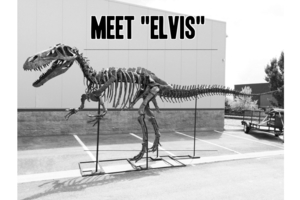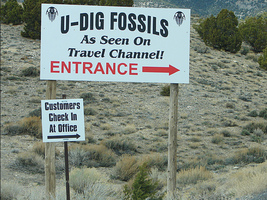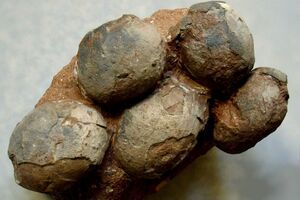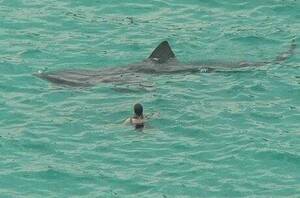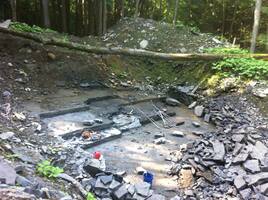Commercial Paleontology Destructive to Human Knowledge?
Every few days I get a blanket statement in the comments of one of my blog or Facebook posts like this one.

Never mind, the post being commented on and FossilEra has nothing to do with archeology, but rather fossils (paleontology). But, To put some context the statement, it was made on a post about this Huntonia trilobite collected at Black Cat Mountain in Oklahoma.
The 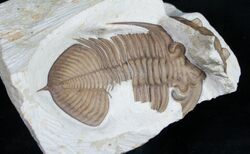 Black Cat Mountain material of a perfect example of where commercial interest has heavily benefitted science, human knowledge and education. Bob Carroll has excavated this locality full-time for 30+ years. Trust me its not easy work, sitting in the Oklahoma sun breaking limestone all day and following by days of starring into a microscope for 8-10 hours straight.
Black Cat Mountain material of a perfect example of where commercial interest has heavily benefitted science, human knowledge and education. Bob Carroll has excavated this locality full-time for 30+ years. Trust me its not easy work, sitting in the Oklahoma sun breaking limestone all day and following by days of starring into a microscope for 8-10 hours straight.
During his life’s work at the quarry he's brought many new species to light that have been scientifically described, supplied thousands of specimens not only to private individuals but also museums and education, and helped to pioneer many modern day fossil preparation techniques. Had there not been an avenue to earn a living by doing this, none of this would have happened and we would have far less understanding about the Haragan Formation and Devonian trilobites in general.
Some of the larger suppliers of commercial material for FossilEra include companies and individuals such as Jason/Dan Cooper of Trilobites of America, Rick Hebdon of Warfield Quarries, Walter Stein of Paleo Adventures, the Larsons of the Black Hills Institute and Larson Paleontology Unlimited, Fossilogic, The Dana Quarry, Bob Carroll of Black Cat Mountain, Memory of Time Quarries in Lebanon, North Sea Fossils and many others.
The passionate, dedicated, life long work of just those listed above has resulted in the discovery, scientific description and publication of HUNDREDS of new specimens including many very scientifically significant finds.
Specimens excavated and prepared by them can be found in nearly every major museum around the world. Yes, the collections of most major museums are heavily built on commercially collected specimens and a lot of research collections rely heavily on commercially collected specimens too. They have helped pioneer modern day fossil preparation techniques. They have published on co-authored countless books, papers, and contributed massive amounts to the human understanding of fossils and paleontology.
Had these people not been able to make a living doing what they love, this would not have happened. These new species would not have been discovered, the books would not have been published, museums would not have many of the spectacular specimens on display that they do, and another generation of future scientists may not have been inspired.
Now you tell me, what is more destructive to the human knowledge of fossils, enabling discovery or to choke it off out of ignorance?
 Reviews
Reviews
